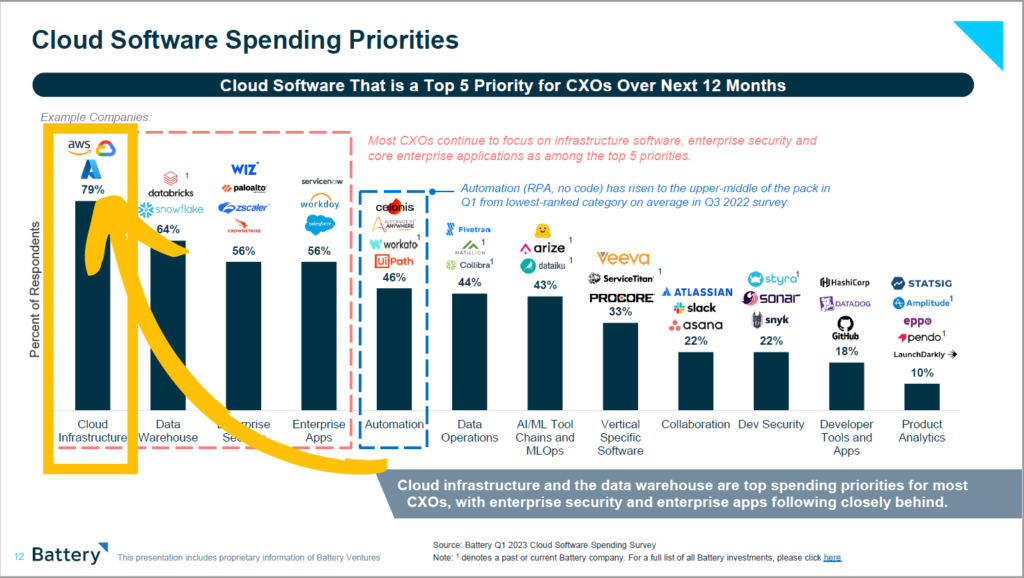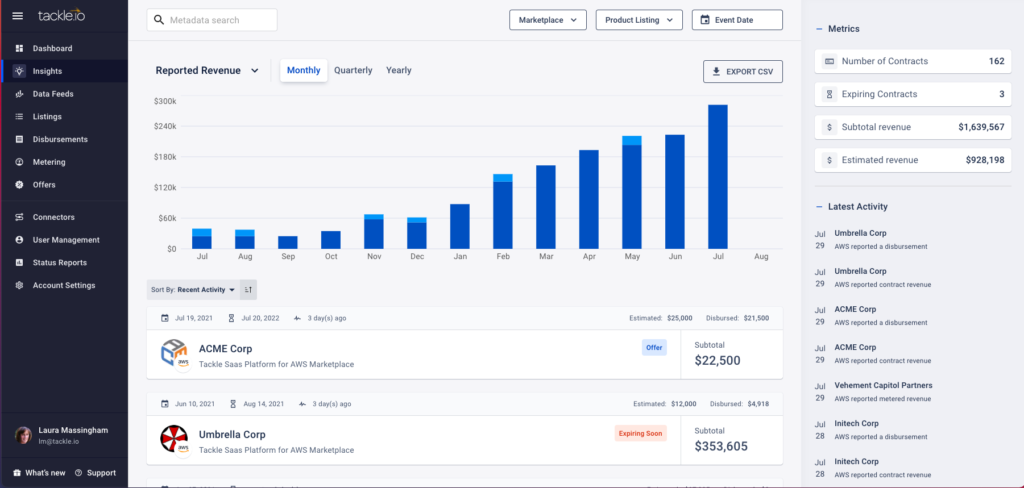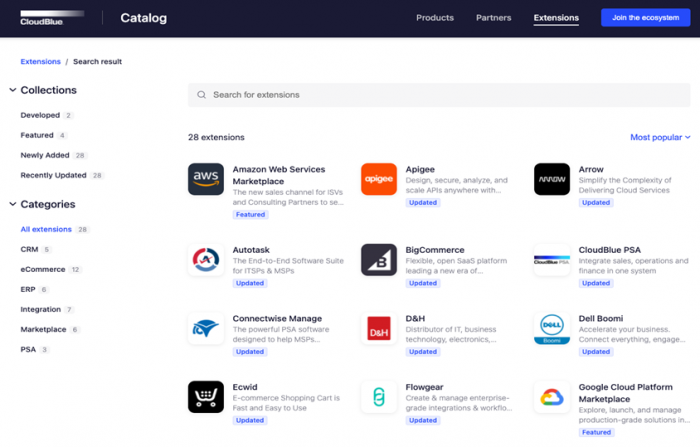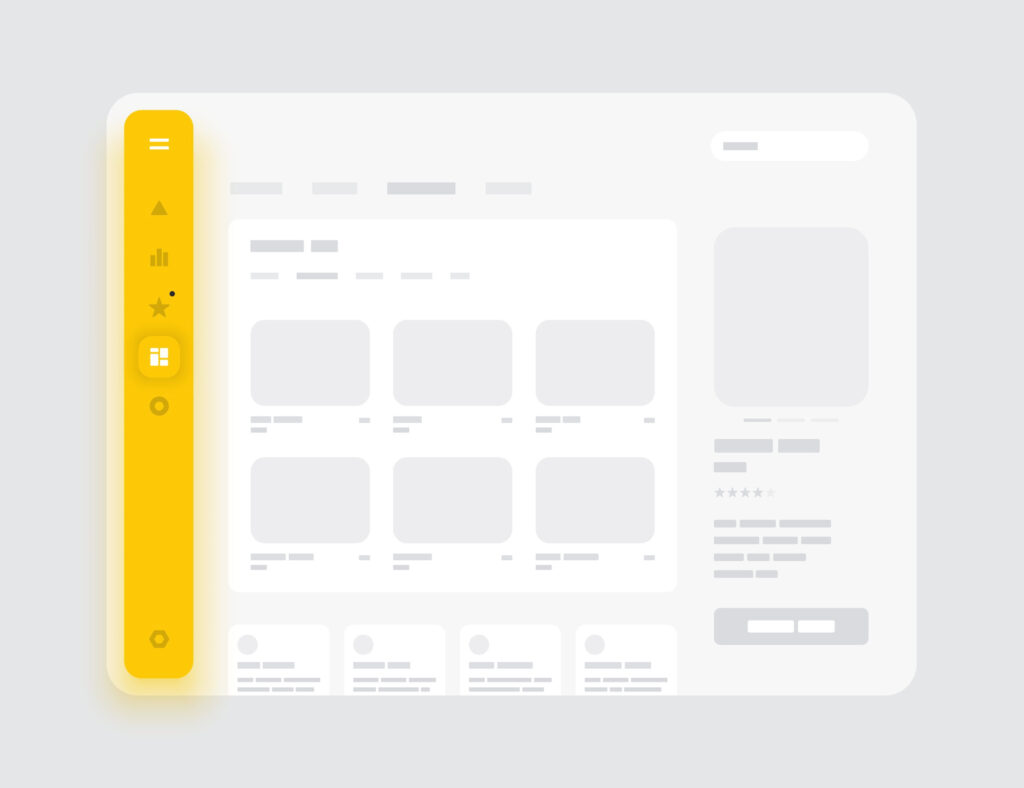Trying to target a pool of B2B buyers with huge budgets and pre-committed cloud spend?
Good news: we’ve found them. They’re using hyperscaler marketplaces like AWS, GCP, and Azure.
Hyperscaler cloud marketplaces are a gold mine for B2B SaaS startups trying to accelerate their sales cycle. Software companies like Snowflake, PagerDuty, and Sisense have been reaping the growth benefits for years — they were among the first companies to hop on the marketplace train.
But what are the tangible benefits of listing your product? And what do the Big 3 hyperscaler marketplaces have in common?
Below, you’ll learn more about hyperscaler cloud marketplaces, how they can jumpstart your growth, and what the Big 3 Cloud marketplaces offer.
What are hyperscaler cloud marketplaces?
Hyperscaler cloud marketplaces handle data processing for distributed cloud systems. Hyperscalers like AWS, GCP, and Azure are indispensable elements of company infrastructure: they allow users to collect and query large volumes of data.
Hyperscalers are a major expense in and of themselves, and they mandate the use of other cloud applications. That means companies need to set aside budget for those applications, too — a lot of it. Gartner forecasts worldwide public cloud spending to reach $591.8 billion, up 20.7% from 2022.
And there’s no sign of it cooling off anytime soon. AWS, GCP, and Azure are growing between 28 and 42% YoY:
Cloud Giants Update:
— Jamin Ball (@jaminball) October 27, 2022
AWS (Amazon): $82B run rate growing 28% YoY (last Q grew 33%)
Azure (Microsoft): In the $50's billion run rate (estimate) growing 42% YoY (last Q grew 46%)
Google Cloud (includes GSuite): $27B run rate growing 38% YoY (last Q grew 36%, neither are cc)
But with so many cloud applications out there, it can be challenging for AWS, GCP, and Azure customers to find, test, and select new ones to add to their tech stacks. Enter: hyperscaler cloud marketplaces.
AWS, GCP, and Azure can keep customers locked in by creating marketplaces full of solutions with direct integrations to their platforms. The vendors listing their solutions on the marketplace benefit from the AWS, GCP, and Azure seal of approval and a ready-to-buy audience. Buyers can use marketplaces to draw down their cloud spend, increasing their chances of obtaining more budget next year.
It’s a win-win-win.
Why list on a hyperscaler cloud marketplace?
According to Battery, a top VC firm, cloud software is the number one priority for CXOs over the next 12 months.
Where does all that cloud spend go? Hyperscalers and the apps that support or enhance them:
By listing on the AWS, GCP, or Azure marketplace, SaaS companies can get in front of buyers who:
- Want solutions that directly integrate with AWS, GCP, or Azure
- Have the money to spend and need to use it up before year or quarter-end
- Aren’t going to waste your sales team’s time
- Want to simplify procurement, consolidate IT spend, and access new tools quickly
- May need the help of one of your partners, strengthening your better-together story
- Could be valuable prospects outside of your typical geography or market segment
Beyond all those benefits, hyperscaler marketplaces capitalize on the fact that 73% of B2B buyers prefer the convenience of ecommerce. App marketplaces serve as digital storefronts, transforming B2B buying into a B2C-like experience.
The Big 3 Cloud Marketplaces: AWS, GCP, and Azure
So, what are the differences between the Big 3? Let’s examine each in detail.
AWS Marketplace
AWS Marketplace offers a wide range of services from over 10,000 providers, all designed to help businesses grow.
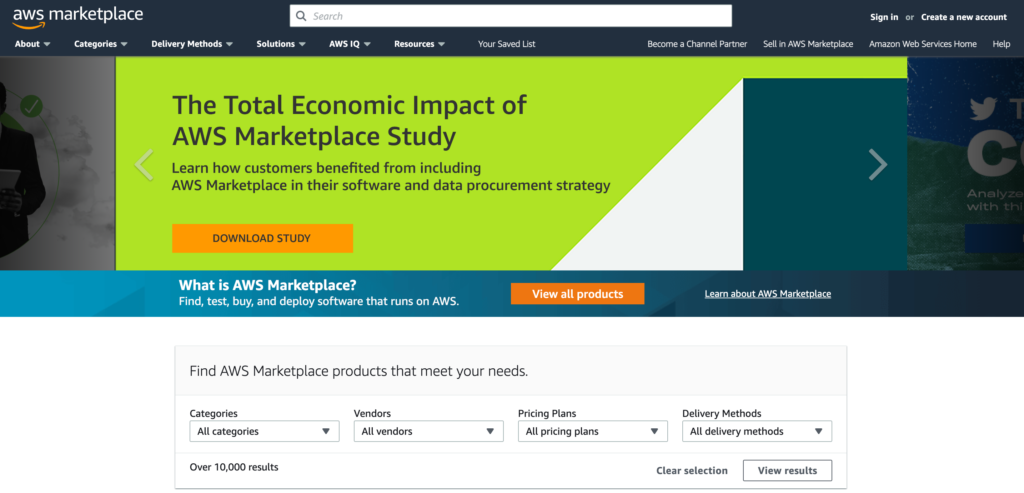
The Marketplace has eight categories — including one for business applications — and dozens of sub-categories to help marketplace buyers find the solution they need. Users can also leave reviews to inform other buyers’ decisions.
Fast Facts
Number of solutions: 10,000+
Review structure: AWS has two type of user reviews: AWS User Reviews and External Reviews.
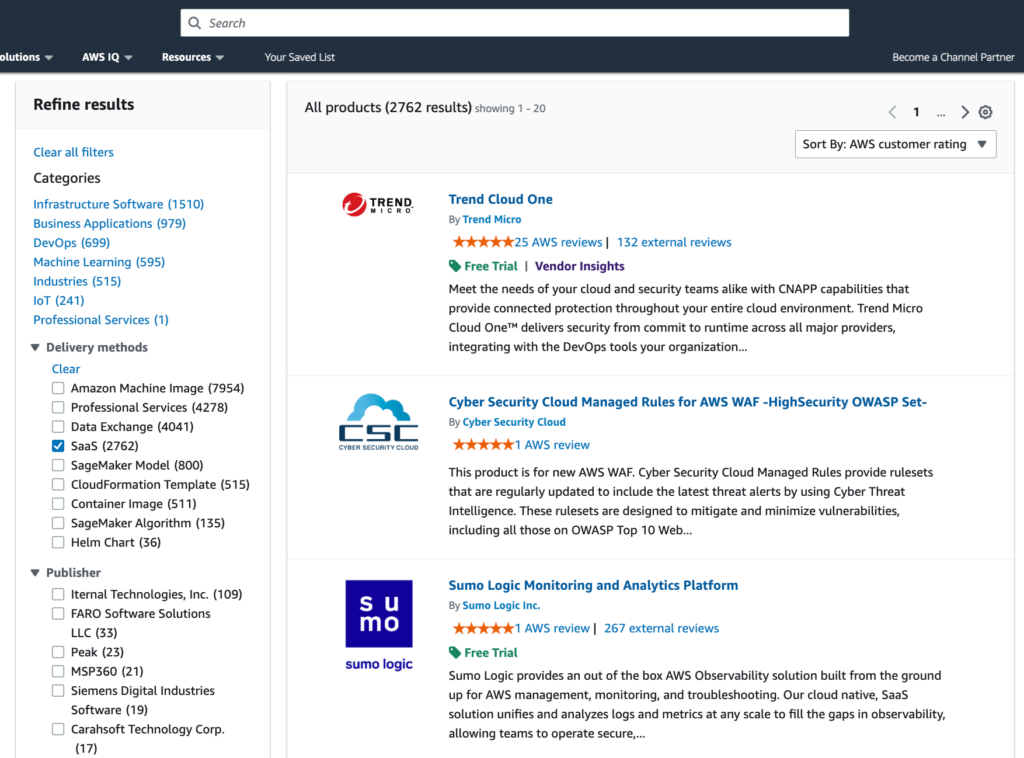
AWS user reviews look very similar to the reviews you’d see on Amazon.com, with one key difference: AWS reviews can only be made by those with an AWS Marketplace subscription for the product being reviewed. You can find more information on guidelines, restrictions, and timelines on the AWS Product Reviews documentation page.
External reviews are product reviews from third-party sources, such as G2. While external reviews are not included in the AWS star rating for the product, they provide marketplace shoppers with additional information on how users have rated and reviewed the product overall.
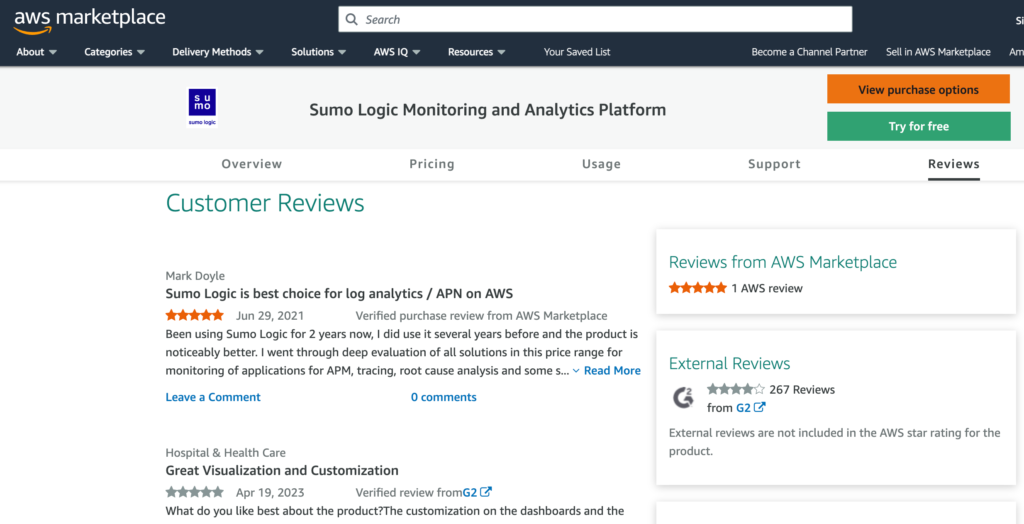
Categories:
- Infrastructure Software
- DevOps
- Business Applications
- Machine Learning
- Data Products
- IoT
- Professional Services
- Industries
Try before you buy? Yes, for some listings.
Delivery Methods:
- SaaS – There are over 2,700 SaaS listings on AWS Marketplace.
- AWS Data Exchange
- Amazon Machine Image
- Amazon SageMaker
- CloudFormation
- Container Image
- Helm Chart
- Private Amazon Machine Image
- Professional Services
Pricing Models: Free, monthly/annual billing, billing by usage, data, requests, and bandwidth.
Who Uses AWS? Enterprise like Vanguard, Disney+, and Samsung.
Google Cloud Platform Marketplace
Google Cloud Platform Marketplace is a one-stop shop for Google Cloud customers looking for cloud solutions. It offers a variety of apps, including those for big data, machine learning, and storage.
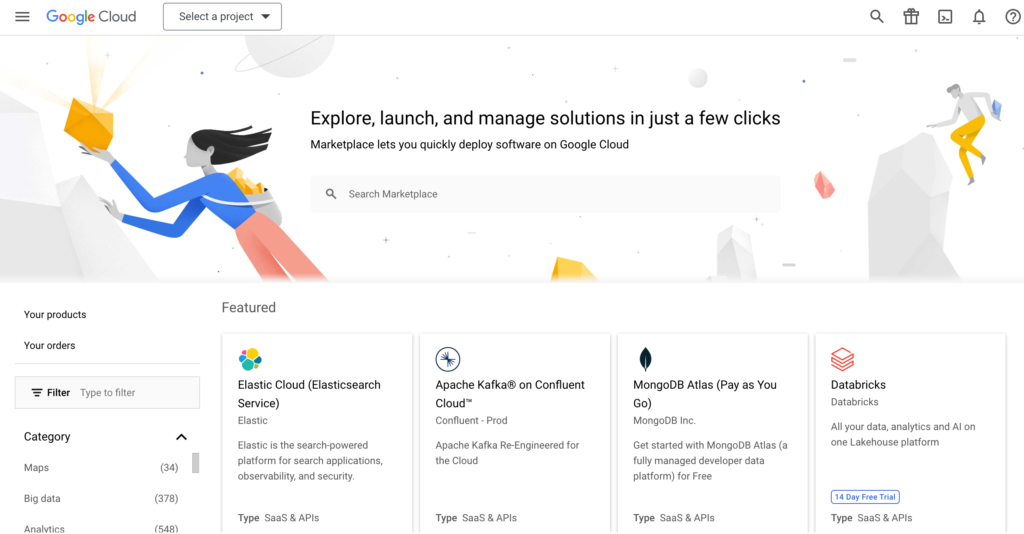
Unlike AWS Marketplace, Google Cloud Platform Marketplace does not use reviews. Although, as you might expect, it has excellent search capabilities, enabling quick and easy access to information. Users can sign up for a free trial and get $300 in credits.
Fast Facts
Number of solutions: 4,500+
Review structure: No reviews.
Categories:
- Maps
- Big data
- Analytics
- Databases
- Machine learning
- Developer tools
- Compute
- Advertising
- Social
- Operating systems
- Economics
- Healthcare
- Transportation
- Education
- Science & research
Try before you buy? GCP has 112 free trial offerings.
Delivery Methods:
- SaaS & APIs
- Google Cloud Platform
- Kubernetes apps
- Container images
- Datasets
- Virtual machines
Pricing Models: Free trial, free, paid, and BYOL (Bring Your Own License).
Who Uses GCP? Enterprise orgs like PayPal, Home Depot, and P&G.
Microsoft Azure Marketplace
Microsoft Azure Marketplace helps Azure users find security, networking, and SaaS solutions that run on the platform. Azure’s listings range from open-source container platforms to threat detection to blockchain.
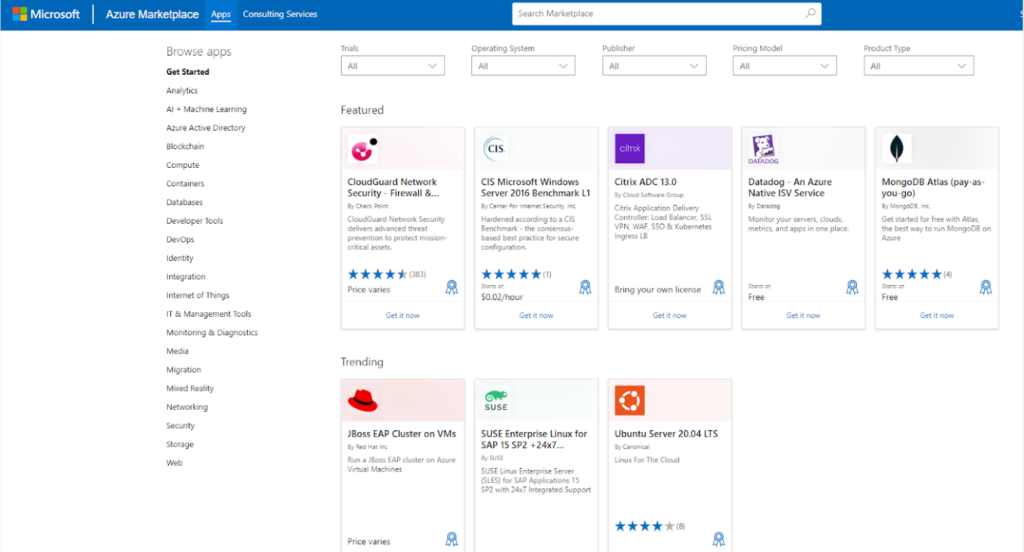
Users can filter based on operating system (Windows or Linux), publisher (Microsoft or Partners), pricing model, and product type. Where possible, Marketplace listings link out to G2 ratings.
Fast Facts
Number of solutions: 18,000+
Review structure: Users can leave up to 5-star reviews and comments. You can learn more about ratings and reviews on Microsoft AppSource and Azure Marketplace, see Microsoft’s page on Ratings and Reviews dashboard in commercial marketplace analytics.
Categories:
- Analytics
- AI + Machine Learning
- Azure Active Directory
- Blockchain
- Compute
- Containers
- Databases
- Developer Tools
- DevOps
- Identity
- Integration
- Internet of Things
- IT & Management Tools
- Monitoring & Diagnostics
- Media
- Migration
- Mixed Reality
- Networking
- Security
- Storage
- Web
Try before you buy? Yes, Microsoft Azure Marketplace has “test drives” and free trials.
Delivery Methods:
- SaaS
- Solution templates
- Virtual Machine Templates
Pricing Models: Free trials, free test drives, BYOL, pay as you go.
Who Uses Azure? Fortune 500 companies like HP, Johnson & Johnson, and Honeywell.
How to Get Listed on Hyperscaler Marketplaces
AWS, Azure, and GCP each have their own processes for getting listed on their marketplaces. That can mean:
- Your development team needs to build multiple unique APIs
- You need to manage different ongoing product fulfillment and delivery processes
- You need to maintain software and subscription model updates
- You need to support multiple geographies with different channel partner agreements
For B2B SaaS companies with limited time and resources, these requirements delay time to listing, restricting a company’s ability to resell effectively. As a result, many vendors turn to companies that can prep information and processes for them, such as Tackle and Cloudblue Connect.
Use Tackle
Tackle.io is a software listing platform that helps vendors list their applications in cloud marketplaces. Users can standardize their offerings across AWS, Azure, GCP, and Red Hat marketplaces and understand how each revenue channel performs over time.
Instead of spending time building their own marketplace integrations or tools to manage every cloud channel, partner teams can focus on what they do best: building relationships and selling.
Tackle pushes product information to AWS, Google Cloud, Azure, and Red Hat marketplaces and tracks deal flow from every platform. Within the Tackle UI, admins can manage pay-as-you-go contracts, overages, monthly true-ups, and percent-of-spend billing.
Key Capabilities
- Easy onboarding
- Direct connectors to AWS, Google Cloud, Azure, and Red Hat marketplaces
- Offer reporting and insights
- Accelerated listing approval (although this comes at a cost)
- Works with known B2B SaaS companies like New Relic, Snyk, Auth0, and VMware.
Use CloudBlue Connect
With CloudBlue Connect, partner teams can publish their vendor listings on AWS, Azure, and GCP marketplaces with simpler integration, significantly cutting development costs. CloudBlue users can configure their listing descriptions and payment options all in one platform.
They can also build automated billing and product fulfillment processes. Users also have access to a number of CloudBlue Connect extensions at their disposal to help them support recurring billing, contracts, and listing customizations.
Key Capabilities
- Open API and pre-built SDKs
- Monitoring and logging functionality out-of-the-box
- Has different deployment environments so users can test their listings ahead of publication
- CloudBlue’s wizards allow users to fully customize their profiles on every marketplace
Get Listed on Other Marketplaces
Hyperscaler marketplaces have a myriad of benefits, but they are only one avenue for listing. There are hundreds of other major marketplaces that B2B SaaS buyers turn to when making a procurement decision.
Like with hyperscaler marketplaces, you can opt to list on other marketplaces directly. But that means you need to understand and cater to each one’s development framework.
Thankfully, there’s an easier way to go: use a distribution partner like PartnerStack. PartnerStack is a known marketplace for B2B SaaS companies that want to identify and connect with new partners. But the company can also extend your channel reach with its integrations to pre-established global channel partner ecosystems like Ingram Micro, CloudBlue, and Arrow.
PartnerStack’s distribution capabilities open up an entirely new go-to-market route, getting you exposure to ideal prospects in markets or geos you couldn’t or hadn’t tapped into previously.
Key Capabilities
- You can onboard partners through one centralized platform to advertise services on multiple marketplaces
- Decreases acquisition costs by outsourcing your sales motion to marketplaces with an already-established customer base
- You get a one-on-one consultation with PartnerStack’s team to understand which distributor program suits your company best
- Users can apply to various accelerator programs, and PartnerStack will notify them of approval
- Leverage PartnerStack’s existing directory of vetted potential partners to expand your reseller network.
Hyperscalers for hypergrowth
Hyperscaler cloud marketplaces:
- Give you clout — not only from AWS, GCP, or Azure but actual customers as well
- Simplify the sales experience
- Help you explore and monetize new avenues for recurring revenue
- Get you exposure to prospects who may not have been in your original ICP
- Provide access to buyers ready and willing to make a purchase
And most importantly, they position your product at the center of the $591+ billion enterprises have to spend on cloud.
But they aren’t your only marketplace option. Distribution partners can expose your product or services to an even broader audience. And, if you’re starting to rack up a hefty list of partners, you might even consider establishing your own marketplace.
Learn how to do it and which vendors can accelerate your own marketplace launch in our 5 Best App Marketplace Software Vendors article.
Authors
-

Elizabeth Melton is a freelance content writer and partnerships consultant for B2B SaaS companies. She's worked at Accenture as a Salesforce consultant and held several GTM roles at companies like BlackLine and Molina, and startups like Retina AI, mParticle, and Coco. She's written for B2B SaaS companies like Navattic, Channeltivity, and Zapier and VCs like Insight Partners and Firstmark Capital. You can see her past work on past work and testimonials on her website: www.lizthewordsmith.com
-

I'm the Founder and Editor-In-Chief of B2B SaaS Reviews and the Director of Demand Generation at PartnerStack, the leading platform for partner management and affiliate marketing in B2B SaaS. My experience spans several notable B2B SaaS companies, including Influitive (Advocate Marketing), LevelJump (Sales Enablement, acquired by Salesforce), and Eloqua (Marketing Automation, acquired by Oracle). I hold a Bachelor of Commerce in Marketing Management from Toronto Metropolitan University and a Master of International Business from Queen's University, with academic exchanges at Copenhagen Business School and Bocconi University.

